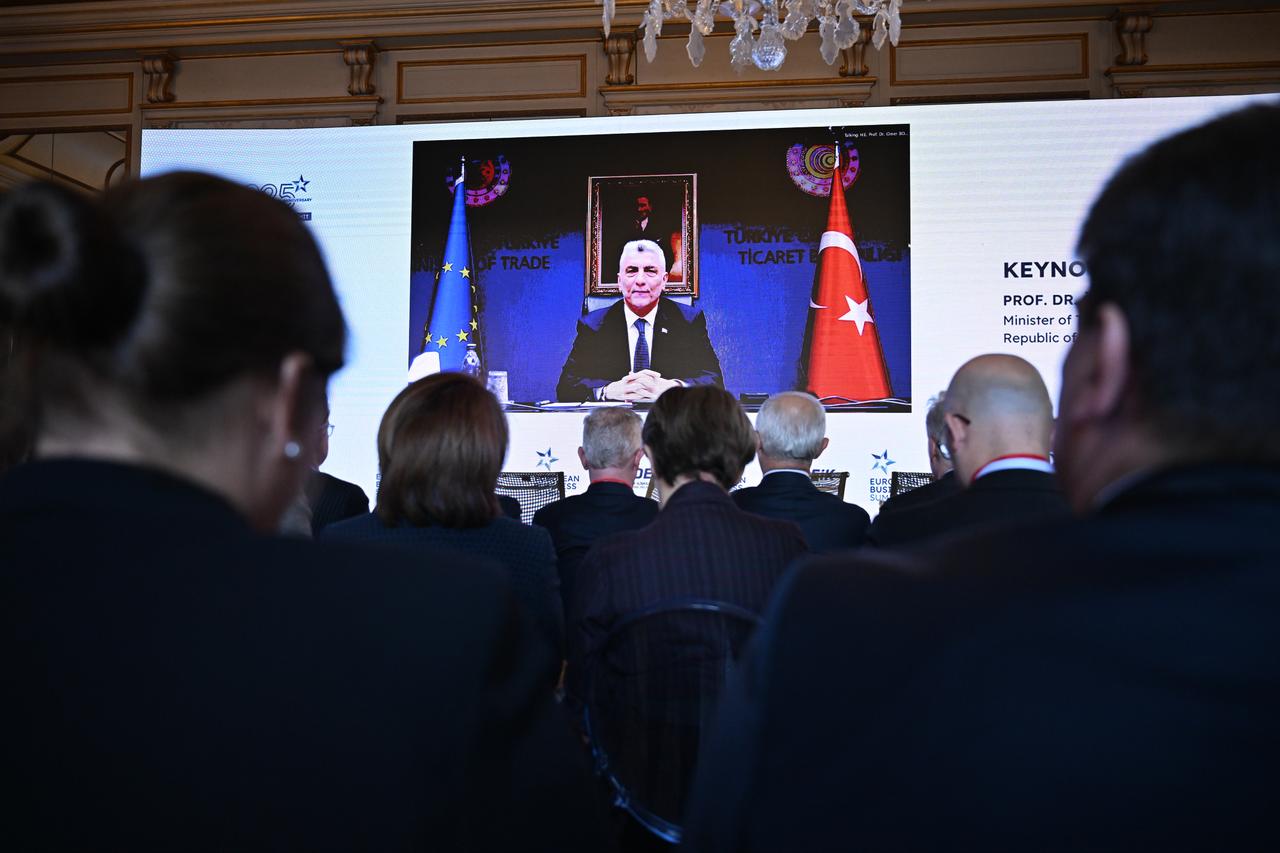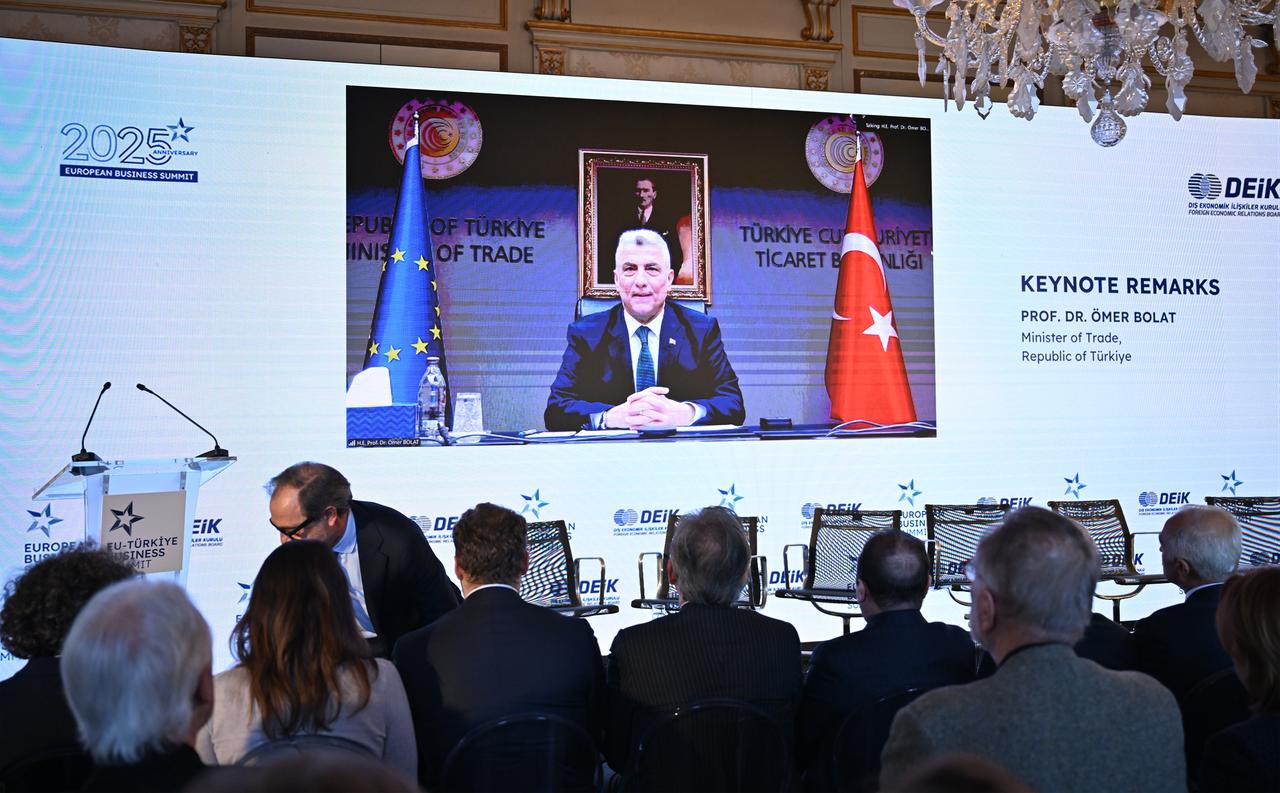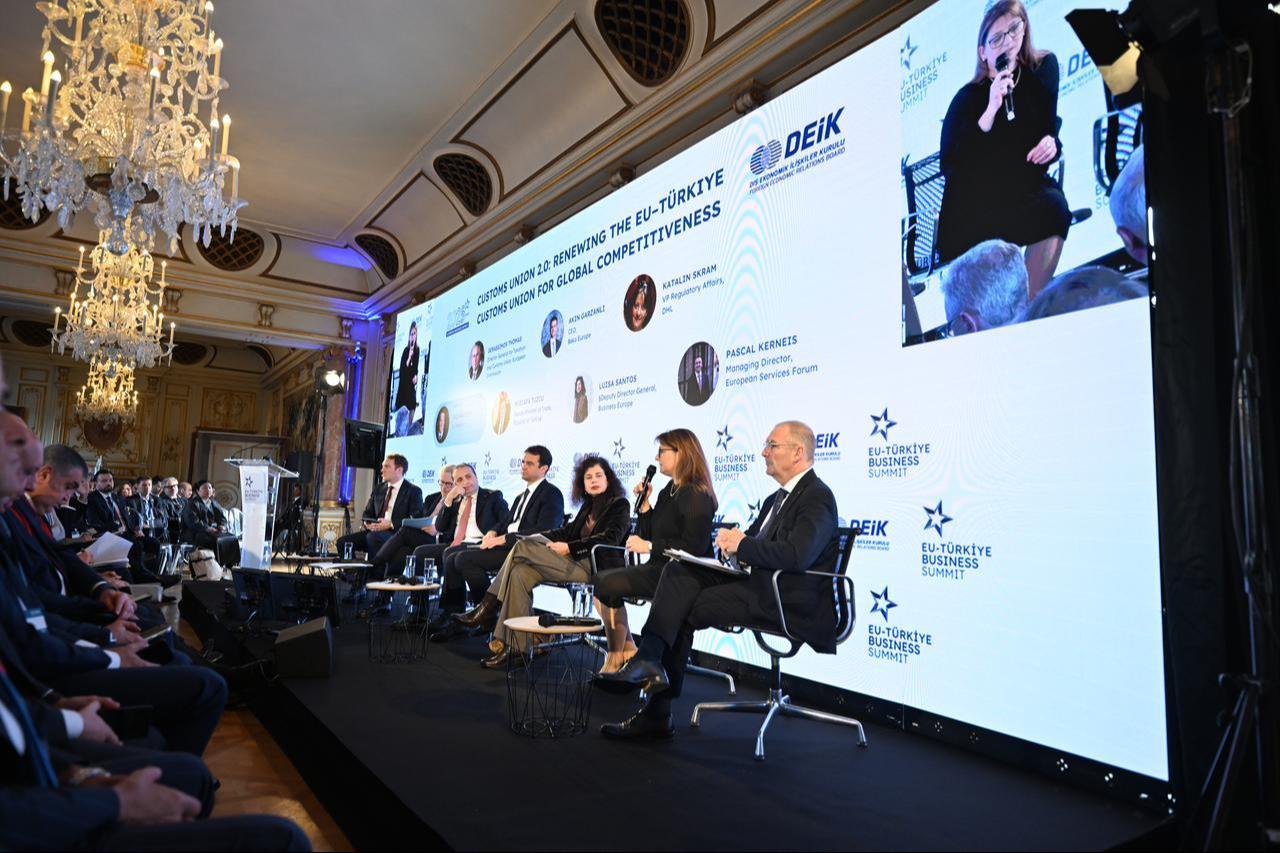
Türkiye’s Trade Minister Omer Bolat renewed the country’s call on Monday for a comprehensive overhaul of its Customs Union agreement with the European Union, stressing that the existing framework no longer reflects current global trade dynamics.
Delivering a video message to the EU–Türkiye Business Summit in Brussels, Trade Minister Omer Bolat said that modernizing the Customs Union is essential not only for strengthening economic integration but also for ensuring a fair, predictable, and forward-looking trade environment for both sides.
The summit was organized jointly by Türkiye’s Foreign Economic Relations Board (DEIK) and the European Business Summit (EBS), and it drew participation from over 400 business leaders, government officials, and think tank representatives. Türkiye’s Permanent Delegate to the EU, Ambassador Faruk Kaymakci, hosted a reception ahead of the main event, which featured several high-level EU and NATO representatives as well as senior Turkish officials.
Minister Bolat highlighted that bilateral trade between Türkiye and the EU reached a record $220 billion in 2024, and is projected to rise to $230 billion by the end of this year. He noted that Türkiye’s exports to the EU accounted for $109 billion last year, or about 41% of its total goods exports.
According to the Turkish Statistical Institute (TurkStat), the European Union remained Türkiye’s leading export destination in 2025 as of September, with export values reaching $86.74 billion—up 8.1% compared to the same period last year.
"Türkiye continues to serve as a strategic manufacturing and supply hub for the EU," Bolat said, pointing out that around 70% of foreign direct investment in Türkiye comes from EU partners. He added that EU companies operating in Türkiye employ nearly 1.2 million people and play a vital role in sustaining supply chains that feed into European markets.
Despite these ties, Bolat emphasized that the Customs Union—first established in 1995—is no longer adequate. "The current framework does not reflect the dynamics of today’s global trade," he said, stressing the need to expand its scope to cover services, digital commerce, green transformation, international investment, and regulatory cooperation.

In his address, Bolat also criticized existing restrictions on Turkish commercial access to the EU market. He said that current visa procedures and road transport quotas for Turkish trucks remain key bottlenecks, making it difficult to move goods and services freely.
"These constraints not only complicate the implementation of the Customs Union but also restrict the free flow of goods, services, and investments between Türkiye and the EU," Bolat warned. He argued that a modernized Customs Union would help overcome these issues by deepening cooperation and increasing efficiency for European investors in Türkiye.
Ambassador Kaymakci echoed this sentiment, stating that visa facilitation should be ensured until full visa liberalization is achieved. He thanked Germany’s EU envoy Thomas Hans Ossowski for his support on the issue and said he expected the process to become easier in the coming months.
Kaymakci also pointed out a paradox in the current trade setup. "Goods can move freely, but the trucks carrying them and the businesspeople behind them face barriers," he said.

Bolat underlined Türkiye’s potential role in European defense projects, saying the country is ready to contribute to joint procurement initiatives under the European Security and Defence Action Plan (SAFE). As a NATO member with an advanced defense industry and strong military, Türkiye could significantly bolster the EU’s resilience, he said.
"Integrating Turkish defense firms into SAFE projects would be a strategic step toward building a more secure and resilient Europe," Bolat noted.
He also reaffirmed the importance of the Türkiye–EU High-Level Trade Dialogue platform, saying it is vital for identifying areas of cooperation, addressing trade disputes, and advancing the goal of modernizing the Customs Union.
Several business figures also spoke at the event. DEIK Chairman Nail Olpak criticized the lack of reciprocity in free trade agreements signed by the EU with third countries, arguing that Türkiye is bound by obligations without benefiting from full market access.
Mehmet Ali Yalcindag, Coordinator of DEIK’s Türkiye–Europe Business Councils, said, "Europe needs Türkiye more than Türkiye needs Europe." He warned that if dialogue continues to stall, future opportunities may be lost, especially considering that nearly half of Türkiye’s exports go to the EU.